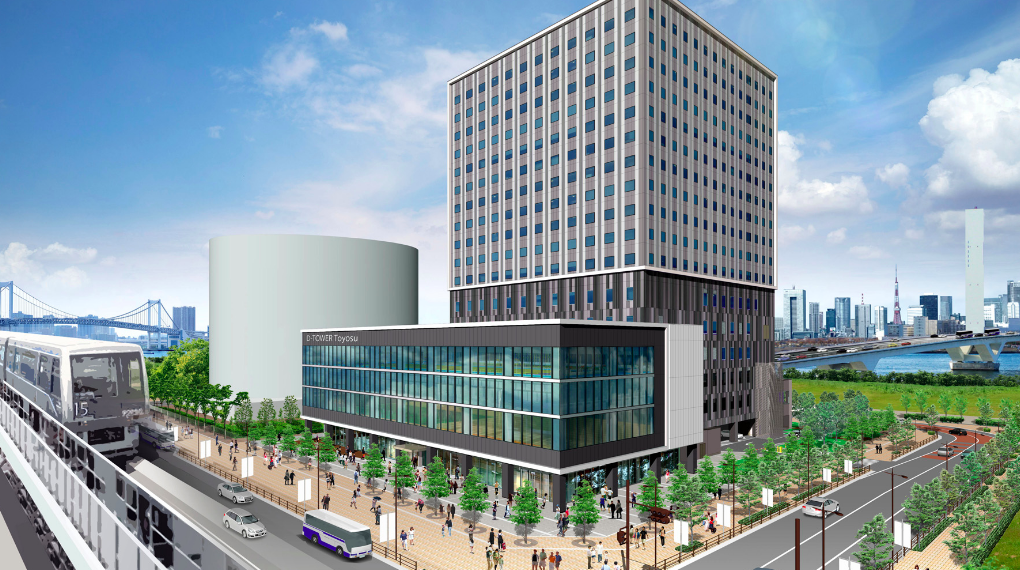Asics announced the opening of an urban large-scale low oxygen training center in September 2019. The training center will be housed within a multi-purpose facility in Tokyo’s futuristic Toyosu district and will be approximately 5,000 square meters and occupy the second and third floors of the facility.
Asics plans to establish a subsidiary company to manage operations when the center opens.
The multipurpose facility housing the Asics training center will be located next to Toyosu Market, a future tourist attraction, will open in October 2018. It is located midway between the Athletes’ Village for the 2020 Tokyo Olympics and Paralympics (in the Harumi neighborhood) and competition venues, and the area is being developed to meet demands for sports-related facilities.
Access to airports and key railway stations is convenient, and this part of the city is expected to see a big increase in visitors. The large-scale center, unprecedented in the world, will offer a swimming pool, running lanes, a training gym and other facilities and athletes will be able to train under low-oxygen conditions for track and field, swimming and other sports competitions. Also, training programs developed with the expertise of Asics will be offered.
The center is intended to be a progressive training center that offers new sports experiences to a wide range of users from elite athletes aiming to improve their performance as well as to public users who wish to improve basic physical strength and to extend healthy life expectancy.
Low-oxygen training involves conditions that mimic the low oxygen density conditions found in high altitudes above 2,000 meters. Training in such conditions improves physical endurance and muscle endurance in a short period of time and more efficiently. Tokyo University Professor Emeritus Mitsumasa Miyashita and others are proponents of such training. High altitude training has long been used by marathon runners, swimmers and cross-country skiers, and the practice is common overseas. The training method had been considered geared mainly to some top athletes, given the costs and time constraints. In recent years, new technology has allowed low oxygen training even at ground level, and the practice is garnering attention for use by the general public to improve recovery from exhaustion.
Asics’ vision has been to “Create Quality Lifestyle through Intelligent Sport Technology,” and the company is committed to providing goods and services that promote healthy and fulfilling lifestyles throughout the world. Asics hopes to add new value to customers’ sports experiences and contribute to the revitalization of sports both within Japan and overseas.
















